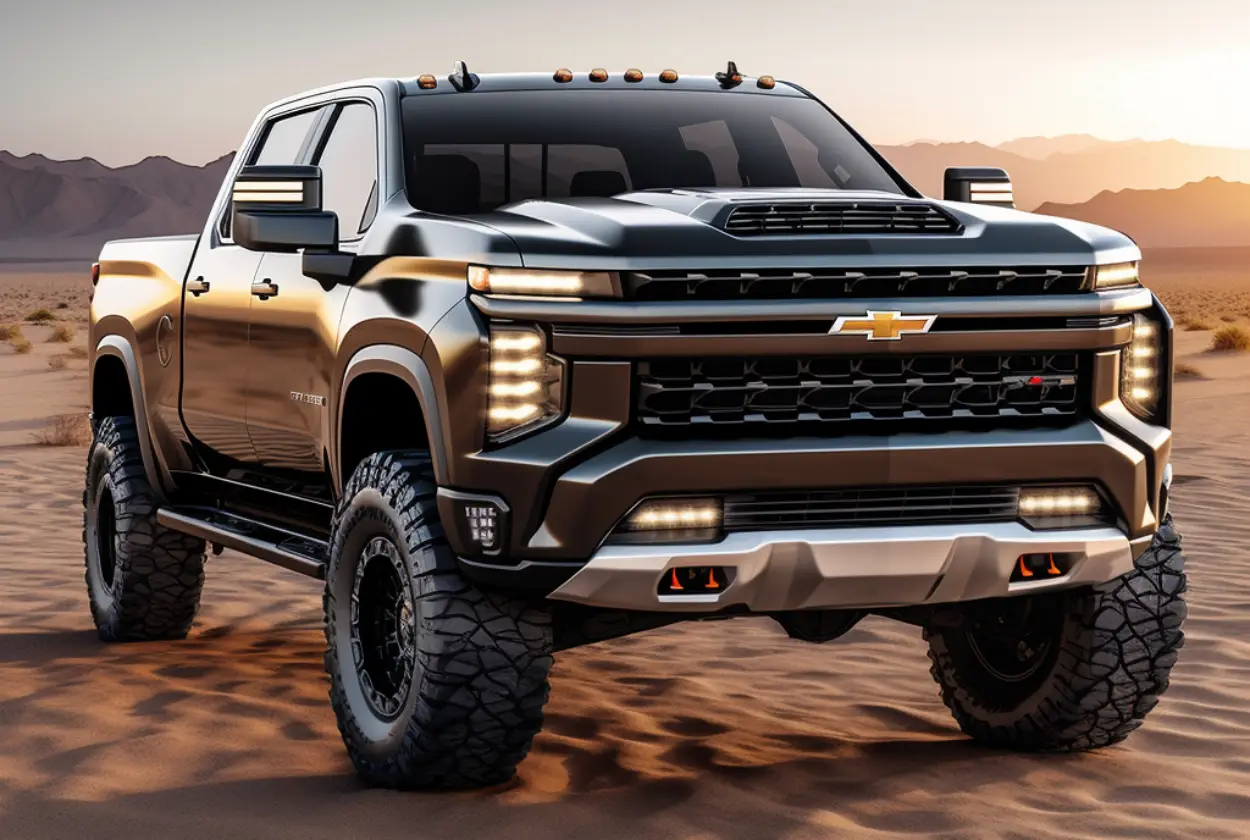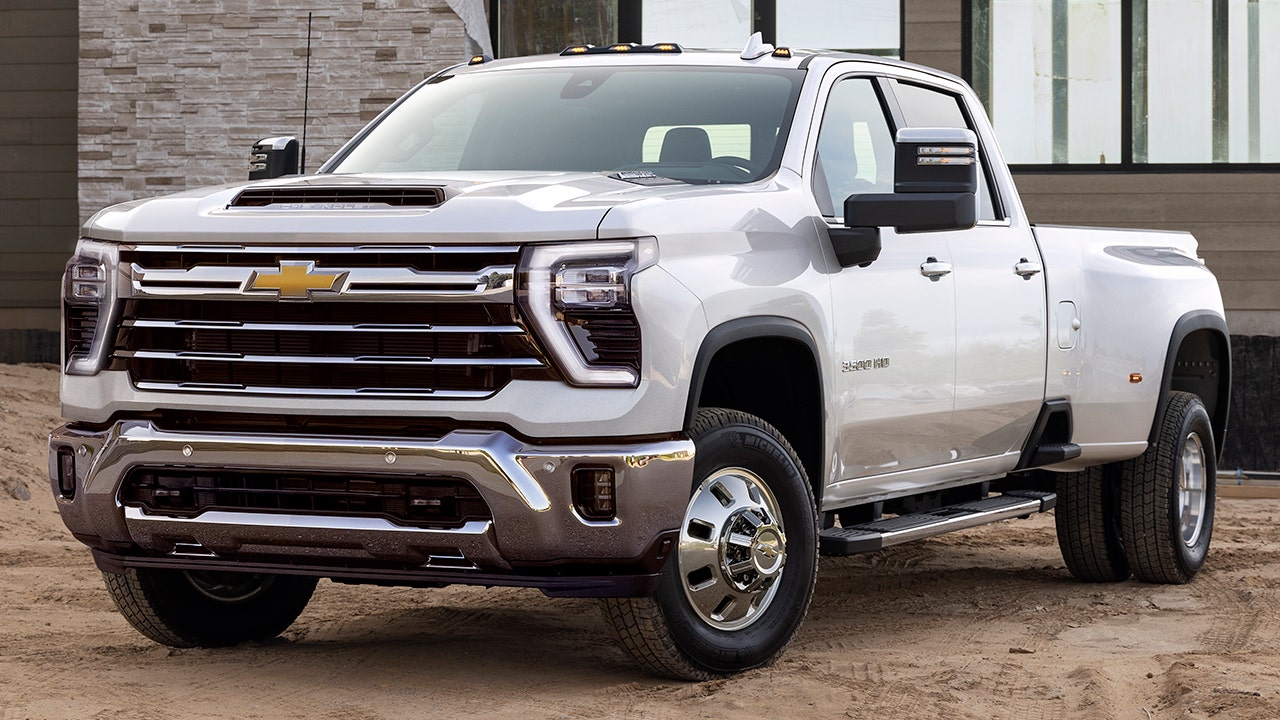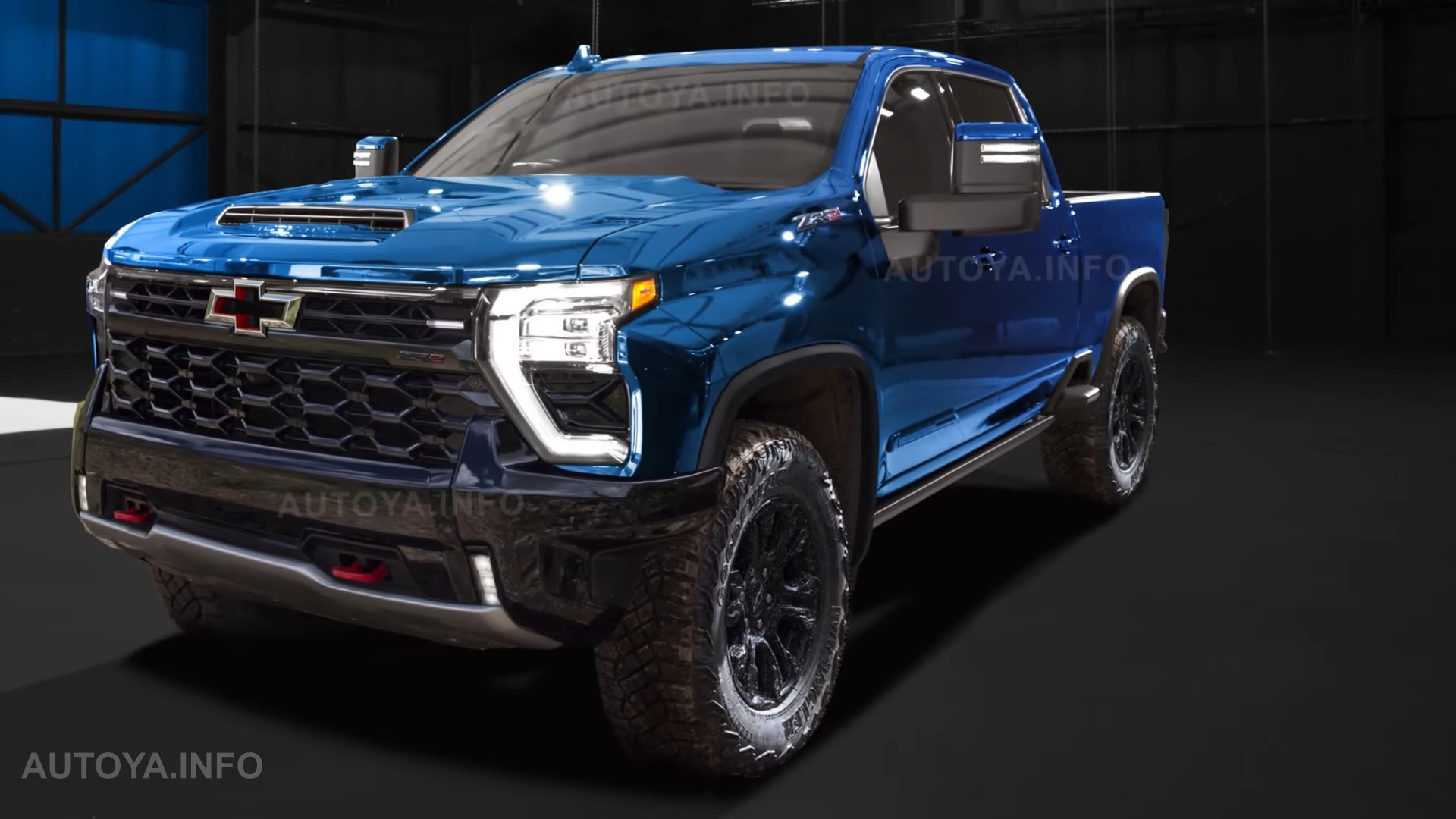Chevy 3/4 Ton Trucks For Sale: Your Ultimate Guide to Power and Value types.truckstrend.com
The rumble of a powerful engine, the promise of immense towing capacity, and the assurance of rugged durability – these are the hallmarks of a Chevy 3/4 ton truck. For generations, Chevrolet’s heavy-duty lineup, primarily the Silverado 2500 and 2500HD series, has been the go-to choice for individuals and businesses requiring serious hauling and towing capabilities beyond what a half-ton truck can offer. Whether you’re a seasoned contractor needing to pull a heavy trailer, an avid RVer planning cross-country adventures, or simply someone who appreciates the robust build and commanding presence of a true workhorse, exploring Chevy 3/4 ton trucks for sale opens up a world of possibilities.
This comprehensive guide delves into everything you need to know about finding, evaluating, and purchasing the perfect used Chevy 3/4 ton truck. From understanding their core strengths to navigating the buying process and identifying potential pitfalls, we’ll equip you with the knowledge to make an informed decision and drive away with confidence.
Chevy 3/4 Ton Trucks For Sale: Your Ultimate Guide to Power and Value
Understanding the Chevy 3/4 Ton Beast: What Defines Them?
Before diving into the market, it’s crucial to understand what makes a Chevy 3/4 ton truck (primarily the 2500/2500HD series) a heavy-duty champion. These trucks are engineered for demanding tasks, distinguishing themselves from their lighter 1500 counterparts through several key characteristics:
- Increased Payload and Towing Capacity: This is the primary differentiator. While exact figures vary by year, engine, and configuration, 3/4 ton trucks boast significantly higher gross vehicle weight ratings (GVWR), enabling them to carry heavier loads in the bed (payload) and pull much larger trailers (towing capacity) compared to 1/2 ton trucks. This is achieved through stronger frames, heavier-duty suspension components, and more robust axles.
- Engine Options: Chevy 3/4 tons typically offer more powerful engine choices. Historically, this includes large displacement V8 gasoline engines (like the Vortec 6.0L or later the 6.6L gasoline engine) and, most notably, the legendary Duramax diesel engine. The Duramax, paired with the Allison transmission, is renowned for its immense torque, fuel efficiency under load, and exceptional longevity, making it a favorite for serious towing.
- Drivetrain Durability: Components like the transmission, transfer case, and differentials are built to withstand greater stress, ensuring reliability even under extreme conditions. Both 2WD and 4WD options are available, with 4WD being popular for off-road capability, adverse weather, and improved traction when pulling heavy loads on uneven terrain.
- Robust Chassis and Suspension: A beefier frame, heavy-duty leaf springs, and often more substantial brake systems are standard, contributing to the truck’s ability to handle significant weight and stress.

Why Choose a Used Chevy 3/4 Ton Truck?
Opting for a used Chevy 3/4 ton truck over a new one offers compelling advantages, making it a smart choice for many buyers:
- Cost-Effectiveness: New heavy-duty trucks come with a hefty price tag. Buying used allows you to acquire a highly capable vehicle for a fraction of the cost, saving tens of thousands of dollars. The depreciation hit is largely absorbed by the first owner.
- Proven Durability and Longevity: Chevy 3/4 ton trucks are built to last. With proper maintenance, these trucks, especially those equipped with the Duramax diesel engine, are known to easily exceed 200,000 or even 300,000 miles, providing years of reliable service.
- Workhorse Capabilities at a Value: You get maximum utility for your dollar. For towing large boats, fifth-wheel campers, equipment trailers, or hauling heavy materials, a used 3/4 ton delivers the necessary power and stability without breaking the bank.
- Established Aftermarket Support: The popularity of Chevy heavy-duty trucks means a vast aftermarket exists for parts, accessories, and performance upgrades. This makes maintenance easier and personalization limitless.
- Resale Value Retention: While depreciation occurs, well-maintained used 3/4 ton trucks, especially diesel variants, tend to hold their value remarkably well due to their high demand and specialized capabilities.

Navigating the Market: Where to Find Chevy 3/4 Ton Trucks For Sale

The market for used Chevy 3/4 ton trucks is extensive. Knowing where to look can streamline your search:
- Dealerships (New & Used): Franchised Chevrolet dealerships often have a selection of certified pre-owned (CPO) or standard used 3/4 ton trucks. Independent used car dealerships also carry them. Dealerships offer convenience, financing options, and sometimes warranties, but typically come with higher prices.
- Online Marketplaces: Websites like AutoTrader, Cars.com, CarGurus, and dedicated truck sites are excellent resources for browsing a wide inventory from both dealerships and private sellers. Facebook Marketplace and Craigslist can also yield local results, particularly for private sales.
- Private Sellers: Buying directly from an owner can often lead to better deals, as there’s no dealership markup. However, it requires more diligence on your part regarding inspections, history checks, and paperwork.
- Auctions: Public or dealer auctions can offer competitive prices, but they are generally recommended for experienced buyers who can quickly assess a vehicle’s condition and understand the risks involved (often "as-is" sales).
- Specialized Truck Websites/Forums: Enthusiast forums and dedicated truck sales websites might feature highly customized or well-maintained trucks from owners who truly understand their vehicles.
The Buying Process: A Step-by-Step Guide
Purchasing a used Chevy 3/4 ton truck requires a methodical approach to ensure you get a reliable vehicle that meets your needs.
- Define Your Needs and Budget: What will you primarily use the truck for? How much payload/towing capacity do you truly need? What’s your absolute maximum budget, including potential repairs, insurance, and taxes? Consider gas vs. diesel, 2WD vs. 4WD, and cab/bed configurations.
- Research Models and Generations: Chevy 3/4 tons have evolved significantly. Research specific years and generations (e.g., GMT800, GMT900, K2XX, T1XX) for their known strengths, weaknesses, common issues, and available features.
- Initial Online Search and Vetting: Use online filters to narrow down options by year, mileage, price, and location. Read descriptions carefully and look at all available photos.
- Contact Sellers and Ask Questions: Before visiting, call the seller. Ask about the truck’s maintenance history, why they’re selling, any known issues, and if the title is clear.
- Inspect the Vehicle (Thoroughly!):
- Exterior: Check for rust (especially frame, rocker panels, wheel wells), body damage, inconsistent paint (sign of previous accidents), tire condition, and proper alignment.
- Underneath: Look for fluid leaks (engine, transmission, differentials), frame damage, bent components, and exhaust system integrity.
- Engine Bay: Check fluid levels and condition, listen for unusual noises, look for signs of overheating or neglected maintenance.
- Interior: Test all electronics (windows, AC, radio), check seat condition, look for water damage or excessive wear.
- Bed/Hitch: Inspect the bed for severe dents or rust. If it has a gooseneck or fifth-wheel hitch, ensure it’s properly installed and inspect for stress cracks on the bed floor.
- The Test Drive: Don’t skip this! Pay attention to:
- Engine Performance: Smooth acceleration, no hesitation, proper shifting.
- Transmission: Smooth shifts, no slipping, no harsh engagement.
- Brakes: Firm pedal, no pulling, no grinding.
- Steering: No excessive play, pulls, or vibrations.
- Suspension: Listen for clunks, rattles, or excessive bounce. Drive at various speeds and over different road surfaces.
- Vehicle History Report (VHR): Purchase a CarFax or AutoCheck report using the VIN. This provides crucial information on accident history, salvage titles, flood damage, mileage discrepancies, and service records.
- Pre-Purchase Inspection (PPI): This is arguably the most critical step. Hire an independent, trusted mechanic to perform a comprehensive inspection. They can identify issues you might miss, saving you from costly repairs down the road.
- Negotiation: Armed with your inspection findings and market research, negotiate the price. Be prepared to walk away if the deal isn’t right.
- Financing and Paperwork: Secure financing if needed. Ensure all paperwork is correct, including the title, bill of sale, and any lien releases.
Key Considerations When Buying a Used Chevy 3/4 Ton
- Mileage vs. Condition: High mileage on a diesel engine isn’t necessarily a deal-breaker if it’s been well-maintained. Low mileage can sometimes indicate a truck that sat for long periods, potentially leading to issues with seals or fluids. Focus on overall condition and maintenance history over just the odometer reading.
- Rust and Corrosion: Heavy-duty trucks often work in harsh conditions. Thoroughly inspect the frame, cab corners, rocker panels, and brake lines for rust, especially if the truck is from a rust-belt region.
- Maintenance Records: A truck with detailed service records is gold. It shows the owner cared for the vehicle and helps you anticipate future maintenance.
- Aftermarket Modifications: Be wary of excessive or poorly installed aftermarket modifications, particularly those affecting engine performance, suspension, or exhaust, as they can lead to reliability issues.
- Common Issues by Generation: Research specific known issues for the model year you’re considering (e.g., injector problems on early Duramax engines, specific transmission quirks, fuel pump issues).
Optimizing Your Purchase: Tips for Success
- Set a Realistic Budget: Don’t just factor in the purchase price. Account for insurance, registration, potential immediate repairs, and ongoing maintenance.
- Be Patient: The right truck might not appear overnight. Don’t rush into a purchase.
- Don’t Skip the PPI: This single step can save you thousands in future repairs.
- Understand Your Towing Needs: Don’t overbuy or underbuy. Calculate your maximum towing weight (trailer + cargo) and ensure the truck’s gross combined vehicle weight rating (GCWR) can handle it.
- Verify VIN: Always check the VIN on the truck against the title and history report.
Chevy 3/4 Ton Truck Pricing Guide (Estimated Ranges)
The price of a used Chevy 3/4 ton truck can vary wildly based on numerous factors. This table provides estimated ranges, but always remember that market conditions, regional demand, and individual truck specifics will influence the final price.
| Factor | Description | Estimated Price Range (USD) |
|---|---|---|
| Vintage (Pre-2000) | Older C/K series, primarily for light work or restoration. | $5,000 – $15,000 |
| Older Gen (2000-2010) | GMT800 (early Duramax/Vortec), common work trucks, higher mileage. | $10,000 – $25,000 |
| Mid Gen (2011-2019) | GMT900 & K2XX platforms, modern features, good balance of value and capability. | $20,000 – $45,000 |
| Newer Gen (2020-Present) | T1XX platform, low mileage, pre-owned, significant tech upgrades. | $40,000 – $70,000+ |
| Engine Type | Duramax Diesel engines consistently command a premium over gasoline V8s. | +$5,000 – $15,000 (for Diesel) |
| Condition | Poor (needing major work) to Excellent (meticulously maintained). | Varies significantly |
| Mileage | High mileage (200k+) vs. Low mileage (<50k). | Major impact on price |
| Drivetrain | 4WD models are generally more expensive than 2WD. | +$2,000 – $5,000 |
| Trim Level | Basic Work Truck (WT) to upscale LTZ, High Country, or GMC Denali variants. | $5,000 – $20,000+ variance |
| Location | Prices can vary by region due to demand, rust concerns, and local inventory. | Up to 10-15% variance |
Note: These are general estimates. Always research specific models and compare prices in your local market.
Conclusion
Chevy 3/4 ton trucks are legendary for their power, durability, and versatility. When searching for Chevy 3/4 ton trucks for sale, you’re not just buying a vehicle; you’re investing in a robust tool designed to tackle the toughest jobs and most ambitious adventures. By thoroughly researching, meticulously inspecting, and understanding the market, you can confidently navigate the buying process and find a used Chevy 3/4 ton that serves your needs reliably for years to come. With proper care, these trucks are truly built to go the distance.
Frequently Asked Questions (FAQ)
Q1: What’s the main difference between a Chevy 1500 and a 2500/2500HD?
A1: The primary difference lies in their capabilities. The 2500/2500HD (3/4 ton) has a heavier-duty frame, stronger suspension, more robust axles, and more powerful engine options (especially the Duramax diesel), allowing for significantly higher payload and towing capacities compared to the 1500 (1/2 ton).
Q2: Is a Duramax diesel engine worth the extra cost in a used truck?
A2: For serious towing or hauling, absolutely. The Duramax offers superior torque, better fuel economy under load, and often has a longer lifespan than gasoline engines. While the initial purchase price is higher, the long-term benefits and resale value often justify the investment for those who need its capabilities.
Q3: What mileage is too high for a used Chevy 3/4 ton diesel?
A3: For a Duramax diesel, 200,000 to 250,000 miles is not necessarily "too high" if the truck has been well-maintained. Diesels are designed for high mileage. Focus more on comprehensive service records, a pre-purchase inspection, and overall condition rather than just the odometer reading.
Q4: What should I look out for regarding rust on a used Chevy 3/4 ton?
A4: Pay close attention to the frame (especially around welds and suspension mounting points), rocker panels, cab corners, wheel wells, and brake lines. Rust can compromise structural integrity and lead to costly repairs. Trucks from drier climates typically have less rust.
Q5: Should I get a pre-purchase inspection (PPI) even if the truck looks good?
A5: Yes, always. A PPI by a qualified, independent mechanic can uncover hidden issues that aren’t visible to the untrained eye, such as worn suspension components, transmission problems, or engine faults. It’s a small investment that can save you thousands in unexpected repairs.
Q6: Are parts and maintenance more expensive for a 3/4 ton truck than a 1/2 ton?
A6: Generally, yes. Heavy-duty components are larger and more robust, leading to higher material and labor costs for parts and maintenance. Diesel engines, in particular, can have more expensive maintenance (e.g., fuel filters, DEF if applicable, injector services) but typically have longer service intervals for some items.
